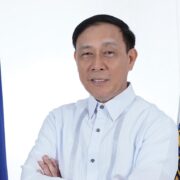
Photo from ddb.gov
ELIMINATING illegal drugs in the Philippines may not be achieved by 2022, the country’s Dangerous Drugs Board admitted this week.
“Ang ginawa nating optimistic target doon sa ating campaign was to sana, magkaroon tayo ng drug-free communities by 2022. But realistically, mukhang hindi natin maa-attain ‘yan (Our optimistic target in our campaign was to hopefully achieve drug-free communities by 2022. But realistically, it seems we wouldn’t be able to attain that),” DDB chairman Catalino Cuy said Wednesday, December 9.
According to Cuy, 14,308 barangays have yet to be cleared of illegal drugs.
Meanwhile, the Philippine Drug Enforcement Agency’s latest report said at least 20,538 of the 42,045 affected barangays have been declared drug-free.
Cuy also maintained that Philippine President Rodrigo Duterte’s war against drugs was effective, noting that the number of drug users have gone down from 3 to 4 million in 2016 to only 1.6 million as of the latest national survey on Filipinos aged 10 to 69.
“All the while the President was thinking that dumarami ang ating mga drug dependents (drug dependents are increasing) but it turned out na nabawasan (that they were lessened) so somehow he was relieved to know that,” he said.
“What is important is that we had sustained an effective anti-illegal drug campaign,” he added.
However, Cuy admitted that the country’s drug problem will never be solved as long as there are patrons of illegal drugs.
“Hindi natin totally ma-eradicate ang drugs (We can’t totally eradicate drugs). It’s just like telling ma-eradicate mo ang crimes. We cannot do that,” he said.
Based on government data, Duterte’s drug campaign has killed at least 5,903 suspects while over 259,000 have been arrested.
Malacañang, on the other hand, remained optimistic that Duterte’s vision of a drug-free Philippines can be fulfilled before he steps down from his post in 2022.
Presidential Spokesperson Harry Roque on Thursday insisted that it is possible if the local government units (LGUs) cooperate with the national government.
“Kung makikipagtulungan po talaga ang mga lokal na pamahalaan, yung natitirang 14,308 barangays eh magiging drug-free na rin pagdating ng pagtatapos ng termino ng ating Presidente (If the LGUs will cooperate, then the remaining 14,308 barangays will be drug-free by the end of the president’s term),” he said.






